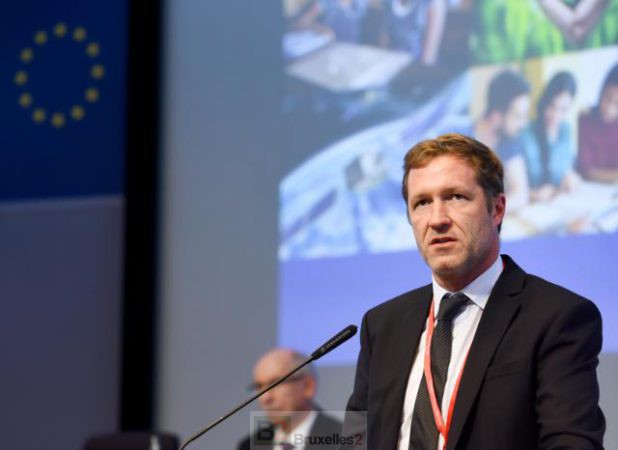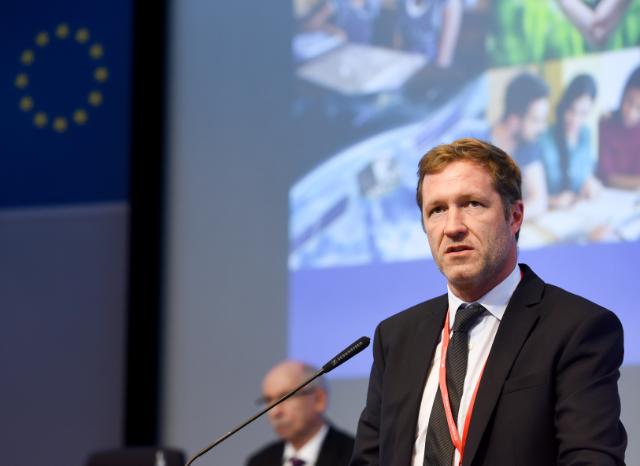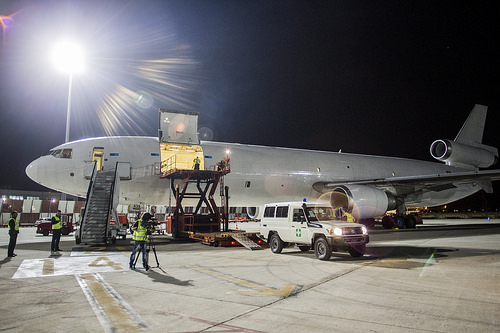Paul Magnette the man of No but...

(BRUXELLES2) His name was known only to a restricted circle of specialists in Europe or the Belgian political world. In a few days, Paul Magnette has become the symbol of a French-speaking Belgium that exists on planet Europe and resists against Flanders. To see in this positioning only political reasons is a mistake, there is more than that, a personal conviction in the way of doing politics.
Not an extremist
To see in this position the expression of an exacerbated leftism is also a mistake. Make no mistake about it. Magnette is in no way an extremist or a utopian globalist alter, he is above all a pragmatic, socialist man closer to the social democrats than to the extreme left. On the scale of the village of Asterix, which today seems to be the symbol of Wallonia, he would play more the role of the Druid Panoramix than that of the village chief Abraracourcix. And if we had to classify him on a French sample, he would certainly be more Rocardian than a follower of Mélenchon. Only Paul Magnette has an ambition and a personal experience that gives him a stature that few politicians have hitherto been able to achieve on European issues in particular. And he knows perfectly well the Belgian institutional workings which gave the regions and the communities the power to approve the European treaties… like the federal state. Moreover, it has a certain charm. Which doesn't spoil anything and gives him an aura in the female sex that only very few politicians reach (in the corridors of the ULB, he is nicknamed "Barbie's Ken", that is to say.. .).
A man of European conviction
Professor of political science, specialist in European issues, director of the Institute of European Studies at the Free University of Brussels (ULB), Paul Magnette has a reputation for seriousness that is second to none in European circles. Before being a politician, it is " an intellectual, with a very structured reasoning, steeped in all European political thought, a fine specialist in questions of democracy explains Vaïa Demertzis, researcher at Crisp, one of the main political research centers in the Kingdom. His thesis was also devoted to the citizenship and European construction (1). It's his specialty, his hobby... How to bring democracy into the functioning of Europe. With CETA, he thus finds a field of experimentation to his measure, allowing him to implement his theory concretely. His sentence on the need not to resort to private arbitration but to public tribunals is not lip service. " We don't want private arbitration. Conflicts between multinationals and States must be decided by public courts ". It is a personal conviction.
Arrived late in politics
It was from 2007, at the age of 36, that he entered politics. He is chosen by the leader of the socialist party, Elio Di Rupo, to go and clean up Charleroi, a working class city, historically socialist, but where corruption is notorious. Mission he succeeds. He will return to Charleroi as burgomaster (mayor) in 2012, a position he still holds. In the meantime, he was appointed Minister, first in Wallonia for Health then at the federal level in charge of Energy and Climate in the government of Guy Verhofstadt. In 2013, he even took over as interim head of the PS to replace his political mentor, Elio di Rupo, who had become Prime Minister. In 2014, he became president of the Walloon Region, somewhat by default. He makes it his personal laboratory. The region thus quickly mobilized on the comprehensive economic and free trade agreement with Canada, by organizing several working sessions and hearings.
Strong popular support
The Walloon “no” to CETA therefore did not fall from the sky. If not predictable, it is logical... In the Walloon parliament, there is only one party, the (liberal) reform movement from which the federal Prime Minister, Charles Michel, comes, which supports CETA . All the parties, without exception – from the CDH Christian Democrats just as determined as the extreme left of the PTB to the Ecolos – are standing against it. A position shared by civil society whether at the level of the three main farmers' unions — socialist, Christian and liberal — or development NGOs such as the CNCD 11.11.11. This question unites all French-speakers beyond Wallonia. Since the Brussels region also said almost no. It provides Paul Magnette with a real popular base allowing him to calmly say... no. A position that is all the more interesting in that it has everything to gain in terms of internal politics.
An internal battle
Jostled by the PTB, the far left party of Maoist inspiration, the socialist party must regain its virginity on the left. " By emphasizing the aspect of democracy - a point that is not really defended by the far left, Magnette is also driving a sensitive wedge among people recently rallied to the PTB explains Vaïa Demertzis. At the same time, he puts Prime Minister Charles Michel (Liberal) in difficulty, who does not have the means to impose his authority on an autonomous region, especially since at the regional level his party is … in opposition . It also sends a signal to Flanders, which had fought to grant the powers of foreign trade to the regions, now finds itself the victim of its own victory. Even if he came to politics late, Paul Magnette is ambitious and knows how to make room for maneuver for future battles.
Magnette could, in this confrontation of CETA, win his captain's stripes for future deadlines: municipal elections in 2018 and legislative elections in 2019. We bet that he will not stop at his post as president of the Walloon region...
(Nicolas Gros-Verheyde)
Commentary: the end of a game
In this case, the European authorities showed incredible clumsiness and above all largely underestimated the Walloon determination. By not demining the subject beforehand, and by preferring to play the clock and the last moment to start negotiating, a normally effective negotiation tactic, the European executive has lost some of its natural wisdom.
An error in judgment
By sending several ultimatums to the Belgians in quick succession to decide, the Europeans failed to obtain the hoped-for "yes". On the contrary... By believing itself in a position to escape this Belgian maxim — "nothing can be agreed until everything is agreed" — the Commission has committed a noticeable cultural error. Forceps negotiation is an intrinsic part of Belgian political life. You have to know how to flex your muscles, say no if necessary, to enter into negotiations. If everything is negotiable in Belgium, the principle of negotiation is not. Like a long-distance tennis player, Paul Magnette was then able to easily return the ball to the sender. " We have already received three ultimatums from both sides. We will not tolerate a fourth ultimatum he said Tuesday evening just before entering yet another trading session. What position him even more in the "hard" camp.
A final signing of the Treaty with a few small additions
Admittedly, the signing of the Treaty will indeed take place in the end. The agreement reached between the Belgian authorities on Thursday (October 27), to which the EU ambassadors gave their approval during an extraordinary meeting which was fast (a good hour and a half at 28 is fast) . It remains to be ratified by the various parliaments of Belgium (including the Walloons and the people of Brussels). And Justin Trudeau will be able to fly to Brussels to sign the CETA agreement and the provisional provisions for entry into force. There will then remain another pair of sleeves: ratification by the 28 Member States (including the 7 Belgian parliamentary levels!).
The end of an old-fashioned negotiation
But the debate imposed on Wallonia will undoubtedly have awakened a certain apathy in Europe in parliamentary circles. A Parliament is not only there to say "Yes" but also to negotiate certain conditions. The additions wanted by the Belgian French-speakers do not completely change the situation, but they do change the spirit of international negotiations. The old-fashioned system – where the European Commission negotiates in its own corner and does not publicly report on the progress of the negotiations – seems difficult to maintain. It will be necessary to obtain a broader consensus of the negotiation with the 28 parliaments (even more if the regional parliaments are involved) before even the idea of being able to negotiate a free trade agreement.
(NGV)
Paper enriched, commented and updated of the article published in the edition of Sud-Ouest on Wednesday
(1) Whose exact title is “Citizenship and European construction. Study of the formation of the concept of citizenship and the recomposition of its institutional forms within the framework of European construction” under the direction of Mario Telo. And published as a book: La European citizenship. Rights, policies, institutions (ULB, 1999).
Paul Magnette has notably published several works around these questions which show that it is not a question of a recent discovery on his part but indeed of an old fad. Note in particular:
• Rethinking Europe (ULB, 1996) with Mario Telo.
• Control Europe. Powers and responsibility in the European Union (ULB/IEE, 2003). " The institutional crisis of 1999, which saw the fall of the Brussels Commission threatened with censorship, revealed to the general public the failings of a political system built without an overall plan, by gradual adjustments. (The author) shows, by examining the genesis and practice of accountability mechanisms in the Union, that the crisis is not only temporary, but that it is also due to some of the fundamental characteristics of the European political system. »
• Towards a revival of parliamentarism in Europe? (ULB/IEE, 2004) with Olivier Costa (Sciences Po Bordeaux).
• A Europe of the elites? Reflections on the democratic fracture of the European Union (ULB/IEE, 2007) with Olivier Costa, and Eric Kerrouche.


Mr Magnette is President of the Walloon region. He therefore speaks on behalf of the majority of the assembly of Wallonia, itself competent to settle regional issues. It is difficult to see how and why the position of this group of a hundred people (?) could impose on 28 States (including Belgium itself) its point of view on the question of trade between Canada and EU. To deny the absurdity of such a situation is to renounce the idea of making any constitutional system, national or European, work properly. That said, some of Professor Magnette's arguments are indeed part of the debate – without having to interfere in the European decision-making process. JGG